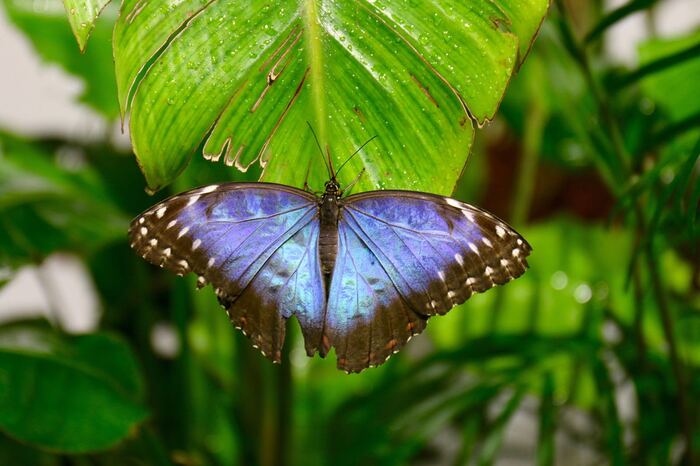Madagascar launches an SOS: from the famous fossa lemurs, their predator and similar to a small puma, passing through the strange sucker-footed bat, there are 120 species of mammals at risk of extinction, more than 50% of the 219 present on the island symbol of biodiversity.
They took 23 million years of evolution to flourish and would take just as many to rebuild if they were to disappear: a much longer span of time than hitherto thought.
It is the estimate of the study published in the journal Nature Communications and led by the Center for Natural Biodiversity of Leiden, in the Netherlands, which raises the alarm: according to the authors of the research, there are only 5 years left to save Madagascar from the point of no return.
The bat, Myzopoda aurita, belongs to an ancient family of bats that lives only in Madagascar (source: Chien C. Lee)
"It is absolutely clear that there are unique mammals found only in Madagascar, some of which are already extinct or are on the verge of extinction," says Steve Goodman of the Field Museum of Natural History in Chicago, co-author of the study led by Nathan Michielsen: "If immediate action is not taken, Madagascar will lose 23 million years of evolutionary history, which means that many unique species on the face of the Earth will no longer exist".
Madagascar is the fifth largest island in the world, but if we think of the richness of ecosystems and biodiversity present, it is more like a mini-continent: its isolation has in fact allowed plants and animals to evolve in unique ways, just think that the 90% of the species are found nowhere else.
A biodiversity constantly threatened since humans settled permanently on the island, about 2,500 years ago: since then, many extinctions have already occurred, including those of giant lemurs, elephant-birds and dwarf hippos.
Microcebus rufus, one of Madagascar's critically endangered lemur species (Source: Chien C. Lee)
To quantify the risk to life on the island, the researchers compiled an unprecedented amount of data describing the evolutionary relationships between all the mammalian species that were present on Madagascar at the time of colonization, 249 in all.
Using computer simulations, the authors of the study were able to calculate the time it took for this biodiversity to evolve and the time it would take for evolution to 'replace' all mammals in the event of extinction.
The results show that 120 of the 219 currently living species are close to extinction.
It will take 3 million years to rebuild the diversity of already extinct animals, but much more, 23 million years, will be needed if the current ones also become extinct.
A span of time that surprised the researchers: "It is much more than what previous studies have calculated for other islands - comments Luis Valente, one of the authors of the study - such as New Zealand or the Caribbean".
This does not mean that, if lemurs disappeared, they could return to populate the Earth in 23 million years: what the study highlights is the period necessary for evolution to reach a similar level of complexity again, even if the species would be entirely new.
The hedgehog Hemicentetes semispinosus, which belongs to a group of mammals unique in the world, found only in Madagascar (source: Chien C. Lee)














